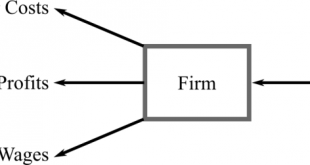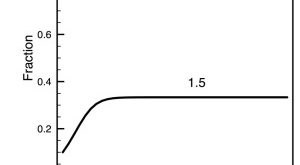Given that Millennials are now approaching middle age, could someone compile all the 1990s cliches about Boomers for recycling, rather than doing it piecemeal? Then we can use the Millennial stuff (lazy, entitled, not like in my day) on Generation Z. Personally, I’m waiting to hit Generation Trump. Share this:Like this:Like Loading...
Read More »Economics of poverty, or the poverty of economics
from David Ruccio Yesterday, the winners of the 2019 winners of the so-called Nobel Prize in Economics were announced. Abhijit Banerjee, Esther Duflo, and Michael Kremer were recognized for improving “our ability to fight global poverty” and for transforming development economics into “a flourishing field of research” through their experiment-based approach. The Royal Swedish Academy of Sciences declared: This year’s Laureates have introduced a new approach to obtaining reliable answers...
Read More »The limits of extrapolation in economics
from Lars Syll There are two basic challenges that confront any account of extrapolation that seeks to resolve the shortcomings of simple induction. One challenge, which I call extrapolator’s circle, arises from the fact that extrapolation is worthwhile only when there are important limitations on what one can learn about the target by studying it directly. The challenge, then, is to explain how the suitability of the model as a basis for extrapolation can be established given only...
Read More »Open thread October 15, 2019
Service disruption
We have had little disruption with service over the last few years, so the disruption Monday came as a surprise. I apologize for any inconvenience. A server malfunction was the cause. It is a reminder that internet infrastructure has weak points other than my laptop.
Read More »No, productivity does not explain income
from Blair Fix Did you hear the joke about the economists who tested their theory by defining it to be true? Oh, I forgot. It’s not a joke. It’s standard practice among mainstream economists. They propose that productivity explains income. And then they ‘test’ this idea by defining productivity in terms of income. In this post, I’m going to show you this circular logic. Then I’ll show you what productivity differences look like when productivity is measure objectively. They’re far too...
Read More »MMT: eliding foundational principles in the interests of journalistic simplicity
from Anne Mayhew I count myself as one of those friendly critics who applaud several of the major MMT contributions to our understanding of the modern American economy. Among these contributions are the emphasis put on the endogeneity of money; the importance of using of a flow-of-funds approach in analysis of the macroeconomy; detailed descriptions of how the FED (Federal Reserve System) actually operates, details usually missing from texts. And from these three emphases the central...
Read More »Do economic models actually explain anything?
from Lars Syll One of the limitations with economics is the restricted possibility to perform experiments, forcing it to mainly rely on observational studies for knowledge of real-world economies. But still — the idea of performing laboratory experiments holds a firm grip of our wish to discover (causal) relationships between economic ‘variables.’ If we only could isolate and manipulate variables in controlled environments, we would probably find ourselves in a situation where we with...
Read More »Open thread October 11, 2019
Radically misleading calculations
from Geoff Davies The point of a theory or model is to provide a useful guide to understanding the world. People like Paul Krugman are fond of claiming simple equilibrium models provide a useful first cut or first approximation to understanding. Others put their faith in more elaborate equilibrium models. But do equilibrium models, simple or elaborate, offer any useful guidance to actual economies, or are they perhaps radically misleading? Is this a useful guide to this? Or this? The...
Read More » Heterodox
Heterodox





